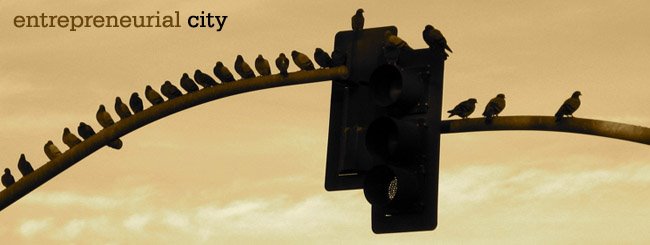
Just outside the San Francisco Bay, in an abyss too rich for tricks of light and sounds, perched beneath an ocean of darkness, the high pressure, on a rock in a crack sits an unknown crustacean. A whole entire environment has shaped the form of his shell, and all his quiet patience as he waits unobserved in his deep black crevice.
A campus, no different at all, creates its own means of survival. My friend Paul, in the summer of his fifth year of his Philosophy PhD program at Stanford, has decided to take a Leave of Absence. He will go to a retreat center, a place entirely in the wilderness, away from everything, in either southern Texas or upstate New York. He will spend an unknown amount of time. He doesn't know or care right now if he will complete his dissertation or not afterwards. He has already completed a draft of it and needs only to revise it. But its not important to him. He has worked only two or three hours a day for the past two years on it. The rest of his day he volunteers at homeless outreach centers in Palo Alto and San Francisco or does volunteer work on campus. More than anyone I know, Paul has proven it possible that being a grad student at Stanford can also mean being directly involved with the community.
We ate lunch together on Friday afternoon at his favorite spot on campus, which you see in the photo. It's easy to forget you're at stanford when you're sitting beneath this tree. During our lunch, I was wondering why someone so involved, someone who struck the balance between working on the dissertation and having a fulfilling socially responsible lifestyle at the same time, would give it all up and decide to live on his own in near complete isolation. I associate this desire to go into the wild with workaholics, businessmen, and millionaires who realize around age 40 they no longer feel anything at all. Paul's nothing like that. When I asked him this question he said he wanted to go because he wanted to learn how to give more of himself. He said the avenues in which he volunteers and does work for the community actually limits what he could give to others. The only way he could truly reach such a way of being, of absolute giving, was to go away for awhile. To retreat altogether from the world itself. He mentioned people in history who had done this: Buddha, Jesus, St. Francis of Assisi, Gandhi. All of the good they did required in the beginning a spiritual fulfillment through a period of complete isolation.
I was amazed to hear this coming from someone and they were words backed up with all the actions of his getting packed and ready to leave come Monday morning (today). It's one of the boldest decisions I've known anyone to make and Paul has always been a key source of inspiration for me; his actions come as no surprise to me.
But I still don't know what to make of them. This desire to help the world by separating oneself entirely from it: is it something that is still possible as it was centuries ago? Or has society become so complex that some new practice of total immersion in it, and all of its emotions, is rather a more successful and accurate means of helping the world? To be more specific, the exact place that most often makes me think of isolation and complete, utter separation is the campus itself: historically, geographically, literally, aesthetically. The Western university was born out of the monastery. Paul teaches me that the isolation and separation one feels as a grad student today is exactly because Stanford is an entirely social and community-involved university. But I wonder: is that other kind of isolation and separation that the more authentic retreat offers any different, is it not also necessarily social and born of this culture as well? Has deeper truth, then, been abandoned; yet still waits out there to be found? Or is that deeper truth, right here, perched in the soft melee, found just beyond San Francisco Bay, in an abyss rich of darkness, high pressure, quietly curled in a trunk of a car on the asphalt of a community college's afternoon parking lot?




1 comment:
Last week, when I took an afternoon bike ride, I happened upon Stanford’s cactus garden. I tried to enjoy myself but hated every minute I was there. It felt too much like campus – exposed and sharp, beautiful but dangerous. The gravel beneath my feet rolled like boulders. I wanted to fly away.
People like Paul are like flowers pressed between the pages of an academic journal. In order to rest there, they must pull up great parts of themselves and attach, somehow, to an unfeeling medium. And there, between the blue lines and black ink of recitation and proof of intellectual capacity speak those soft and natural petals of real knowledge. I did not know Paul, but I am sad to hear he is gone. Stanford closed its covers tightly, it seems. Or maybe its pages never yielded to what it did not manufacture itself.
Perhaps, by vacating a geographically-specific place, a place burned deep into the respected map, Paul’s voice will defend a universally-general, unbound and undefined community. I am hopeful, but the isolation remains.
Such an amazing post. Entrepreneurial City just gets better and better. Thank you for this, Mordenti and Ming.
Post a Comment